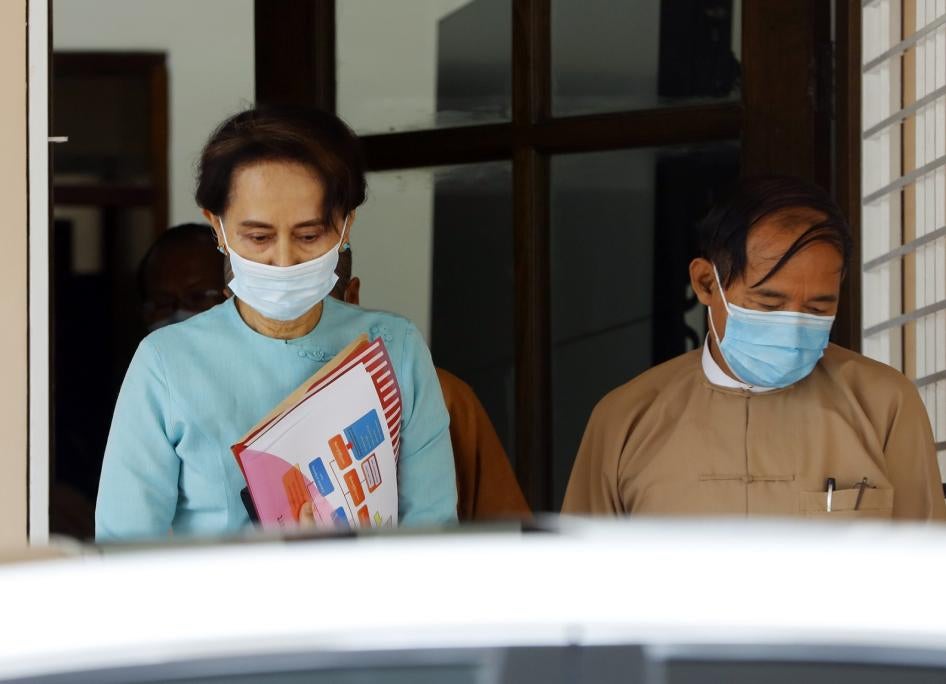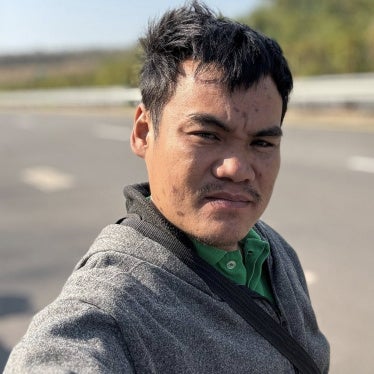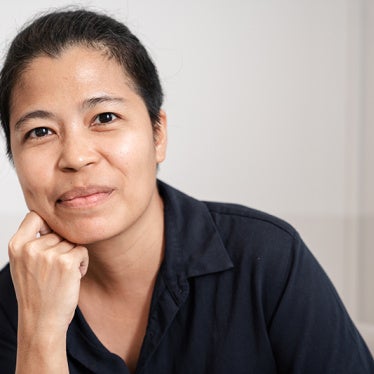(Bangkok) – The Myanmar authorities should cease responding to criticism of the government and military with arrests and prosecutions of students protesting human rights abuses, Human Rights Watch said today. They should immediately drop charges against the students and unconditionally release those in custody.
At least 20 students around the country have been charged or are facing arrest under various laws after joining protests or sticker campaigns critical of the government or military, including criticizing the mobile internet shutdown in Rakhine and Chin States, according to the All Burma Federation of Student Unions (ABFSU).
“The Myanmar government deserves a failing grade for intimidating and harassing students peacefully expressing their views,” said Linda Lakhdhir, Asia legal adviser. “Neither criticizing the government nor peacefully protesting should be a crime, and the authorities should stop treating them as such.”
On September 10, 2020, members of the student federation conducted a “sticker” campaign in solidarity with Rakhine students who had been arrested the previous day for protesting internet restrictions. The ABFSU members distributed fliers and stickers demanding that 3G and 4G data services be turned back on across eight townships in Rakhine and Chin States. The slogans included: “No bloody government. No murder army” and “Oppose murder and fascism and stand together with the Rakhine people.”
On September 12, the Special Branch unit of the police conducted a nighttime raid on the home of Paing Min Khant, a student in North Okkala, Yangon. “When the police knocked on our door, they told us that they were coming into our home to take temperature checks as part of neighborhood health checks for Covid-19,” Paing Min Khant told Human Rights Watch. “But then they came in and told us they had filed complaints against us under section 19 of the Peaceful Procession and Peaceful Assembly Law in Mayangone and Kyauktada townships [in Yangon].”
Police took him and another student, Wai Yan Phyo Moe, to the Mayangone township police station, where they were told they would face charges under the Peaceful Assembly and Peaceful Procession Law for failing to notify police when distributing anti-war fliers and stickers in downtown Yangon.
Myanmar’s Peaceful Assembly and Peaceful Procession Law requires organizers to give notice to the authorities 48 hours before holding a protest or assembly. The law carries a maximum penalty of three months in jail and a fine. Treating the distribution of stickers and flyers as an “assembly” requiring notice is a new and overly broad reading of that law, Human Rights Watch said.
The authorities also threatened Paing Yin Khant and Wai Yan Phyo Moe with possible additional charges under section 505(b) of the Penal Code, which carries a penalty of up to two years in prison and a fine.
The pair said police later took them to the Kyauktada township police station and questioned them about the whereabouts of other students before finally releasing the two around midnight. The students said the police did not immediately file charges against them but said they were conducting the investigations as part of an “open” case.
On September 18, at least 20 police officers conducted a pre-dawn raid of Nyi Lin Htin’s home in Monywa, Sagaing State. The student federation told Human Rights Watch that Nyi Lin Htin was not home and that family members said they were not shown a search warrant.
The police have arrested three other participants in the sticker campaign and charged them with violating section 505(b) of the Penal Code. Police in Meiktila arrested Than Toe Aung and Sann Linn on September 16. They are being held in Meiktila prison in Mandalay Region while they await trial. Another student, Lin Thurako, is detained in Monywa prison, in Sagaing State, where he awaits trial on the same charge.
Section 505(b) of the Penal Code is an overly broad law that prohibits speech that may cause “fear or alarm in the public” and lead others to “upset public tranquility.” The law has long been used against speech critical of the government. It should be amended to cover only speech intended to incite violence or serious public disorder, with those terms clearly defined to ensure that they conform to international standards, Human Rights Watch said.
On September 9, the police arrested three ethnic Rakhine student protesters – Toe Toe Aung, Kyang Naing Htay, and Oo Than Naing – in Sittwe, Rakhine State, for staging a protest and holding signs critical of the government and military. On September 10, they were charged under the Natural Disaster Management Law for holding a protest while Covid-19 regulations were in place. Those charges were dropped on September 22 and authorities said the trio would instead face charges under Section 19 of the Peaceful Assembly and Peaceful Procession Law.
“The police’s use of late-night raids against peaceful student activists is abusive and unnecessary, and serves no purpose other than intimidation,” Lakhdhir said. “The Myanmar government should eliminate criminal penalties for organizing or participating in a peaceful assembly and end the harassment of peaceful critics like these students.”









